A list of fiction exploring the complexities and contradictions of life in the Austro-Hungarian empire and its eventual dissolution in the first world war.
1
Roth's novel tells the story of the decline and fall of the Austro-Hungarian empire through the lives of three generations of Trotta family. This is a historical novel which presents History not as a tale of progress but as a catastrophe.It also upends received notions about politics, democracy, monarchy etc so that you start seeing the world through a fresh perspective which is what all great works of fiction do. Roth was a Jew born in Galicia (in modern day Ukraine). He understood how Jews would become pariah after the empire broke into multiple nations with each defining their citizenship based on ethnicity, with catastrophic consequences. He didn't live to see the Holocaust (he committed suicide in 1939) but every second paragraph in the novel contains sentences full of apocalyptic forebodings which send a chill down your spine. This is a novel as a political and historical prophecy.
2
Unlike The Radetzky March, there is no hint of lamentation or elegy in Robert Musil's The Man Without Qualities though it deals with the same subject - the collapse of the empire. Wielding an ironic prose style, Musil instead satirizes the delusions of the ruling classes and the bourgeoisie of Austria who refused to face what was coming to them. Instead of lamenting the collapse of the old order he sees it as an opportunity - an opportunity for the revaluation of all values, following Nietzsche, who he was influenced by.The novel of course remains incomplete. Musil couldn't finish it but his diagnosis of the reasons behind the collapse of the old order remains a dazzling tour de force.
3
The main themes of Kafka's novel - struggle of an individual against a faceless bureaucracy representing a kind of nightmarish rationality and the idea of a community and what it takes an individual to fit into it both do resonate deeply with the realities of life in the Austro-Hungarian monarchy. For many who lived on the fringes of the empire the institution of monarchy did indeed feel like the seat of authority in the mysterious castle. Also, the struggle of Jews to find a place in the various ethnic and national communities corresponds to the protagonist's similar struggle to find an acceptance in the village community.
4
Hasek was a member of the Austro-Hungarian army and he used his own experiences in the First World War to write about the exploits of the bumbling soldier Svejk in the war. This is considered a great classic of Czech literature and it is also one of the funniest novels ever written. The monarchy, the army, Czech and various other ethnic nationalists, the socialists, the royalists, the Russians, the catholic Church, the different social classes - nothing escapes Hasek's withering satire.
5
This is a psycho-analytic case study, not a novel. In it Freud describes the case of "Dora" who came to him after suffering from aphasia (losing her voice) which was then thought of as a "hysterical" symptom. Freud investigates and diagnoses it as a case of denial of one's own sexual desire. Dora initially tells him that her father is involved with "Frau K." and that he is giving her to "Herr K." who is his friend as a sort of "exchange". Freud doesn't believe her and instead claims that she is jealous of the other woman because of her attachment to her father and that she herself feels sexual attraction towards her father's friend which she is in denial of. This text has been a subject of a lot of criticism, specially from feminists, but if one reads it as a work of fiction it is possible to read it against itself, so to say, and in that way it reveals fascinating insights about sexual and family life of the bourgeoisie in fin de siecle Vienna
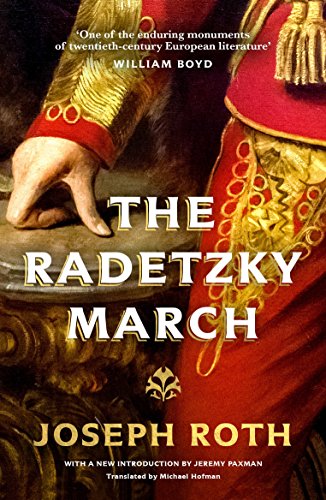
1
Roth's novel tells the story of the decline and fall of the Austro-Hungarian empire through the lives of three generations of Trotta family. This is a historical novel which presents History not as a tale of progress but as a catastrophe.It also upends received notions about politics, democracy, monarchy etc so that you start seeing the world through a fresh perspective which is what all great works of fiction do. Roth was a Jew born in Galicia (in modern day Ukraine). He understood how Jews would become pariah after the empire broke into multiple nations with each defining their citizenship based on ethnicity, with catastrophic consequences. He didn't live to see the Holocaust (he committed suicide in 1939) but every second paragraph in the novel contains sentences full of apocalyptic forebodings which send a chill down your spine. This is a novel as a political and historical prophecy.
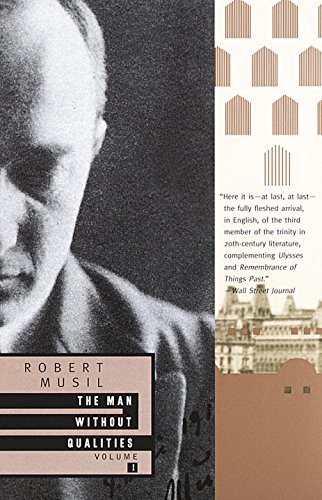
2
Unlike The Radetzky March, there is no hint of lamentation or elegy in Robert Musil's The Man Without Qualities though it deals with the same subject - the collapse of the empire. Wielding an ironic prose style, Musil instead satirizes the delusions of the ruling classes and the bourgeoisie of Austria who refused to face what was coming to them. Instead of lamenting the collapse of the old order he sees it as an opportunity - an opportunity for the revaluation of all values, following Nietzsche, who he was influenced by.The novel of course remains incomplete. Musil couldn't finish it but his diagnosis of the reasons behind the collapse of the old order remains a dazzling tour de force.
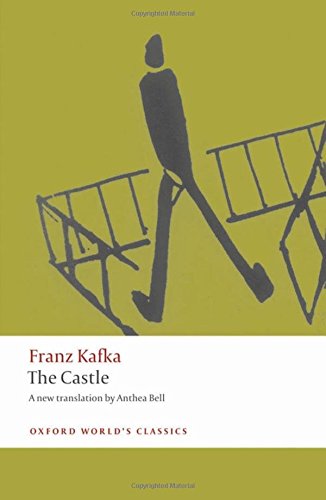
3
The main themes of Kafka's novel - struggle of an individual against a faceless bureaucracy representing a kind of nightmarish rationality and the idea of a community and what it takes an individual to fit into it both do resonate deeply with the realities of life in the Austro-Hungarian monarchy. For many who lived on the fringes of the empire the institution of monarchy did indeed feel like the seat of authority in the mysterious castle. Also, the struggle of Jews to find a place in the various ethnic and national communities corresponds to the protagonist's similar struggle to find an acceptance in the village community.
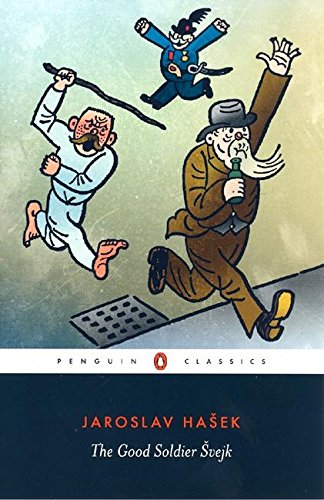
4
Hasek was a member of the Austro-Hungarian army and he used his own experiences in the First World War to write about the exploits of the bumbling soldier Svejk in the war. This is considered a great classic of Czech literature and it is also one of the funniest novels ever written. The monarchy, the army, Czech and various other ethnic nationalists, the socialists, the royalists, the Russians, the catholic Church, the different social classes - nothing escapes Hasek's withering satire.
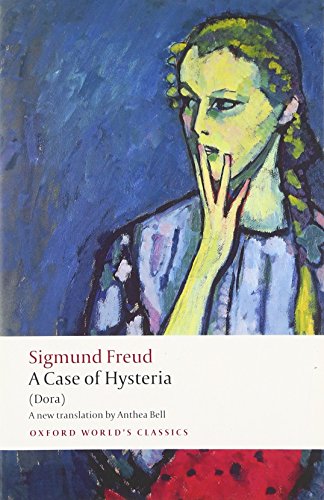
5
This is a psycho-analytic case study, not a novel. In it Freud describes the case of "Dora" who came to him after suffering from aphasia (losing her voice) which was then thought of as a "hysterical" symptom. Freud investigates and diagnoses it as a case of denial of one's own sexual desire. Dora initially tells him that her father is involved with "Frau K." and that he is giving her to "Herr K." who is his friend as a sort of "exchange". Freud doesn't believe her and instead claims that she is jealous of the other woman because of her attachment to her father and that she herself feels sexual attraction towards her father's friend which she is in denial of. This text has been a subject of a lot of criticism, specially from feminists, but if one reads it as a work of fiction it is possible to read it against itself, so to say, and in that way it reveals fascinating insights about sexual and family life of the bourgeoisie in fin de siecle Vienna
© Five Books 2025